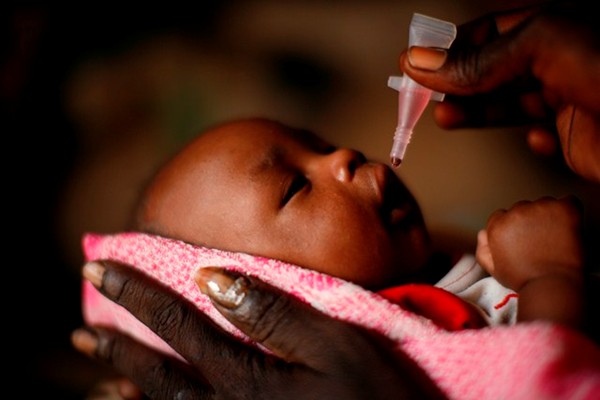Success against polio by end-2014 realistic prospect: IMB
Key fundamental changes needed

The Independent Monitoring Board (IMB) for polio eradication has underscored that ‘stopping polio transmission by end 2014 is a realistic prospect’. In the report of its 7-9 May meeting, the Board commended the programme on the fundamental changes that have transformed the effort into a more responsive and coordinated health initiative, which has brought polio to the lowest levels ever.
At the same time, however, the IMB put forward key recommendations to address fundamental changes that are still needed. In the words of the IMB: “Whilst the poliovirus has been knocked down, it is certainly not knocked out… In the midst of so many strengths, why focus on the weaknesses? Because the poliovirus will seize on them. Impressive as recent progress has been, the IMB is firmly of the view that the task of stopping transmission in the remaining endemic areas is enormous and should not be under-estimated.”
The IMB highlighted three programme areas in particular that needed to be addressed:
1. Communications & social mobilization: across the entire Global Polio Eradication Initiative (GPEI), a fundamental change is essential to ensure that parental and community concerns about vaccine safety and efficacy can be adequately addressed, and to generate genuine demand for polio vaccinations.
2. Inactivated polio vaccine (IPV) in endemic countries: a final decision is urgently required (by end-2013) whether to introduce IPV in the remaining endemic countries prior to the universal introduction of IPV as outlined in the new Polio Eradication and Endgame Strategic Plan 2013-2018.
3. Responsive and coordinated global management: a more focused approach is needed at the global level to ensure that countries receive the most optimal support possible.
The IMB put forward key recommendations to the remaining endemic countries, as well as to urgently address the outbreak currently affecting the Horn of Africa. On financing, the IMB commended the pledges made at the recent Global Vaccine Summit, however cautioned that the remaining US$1.5 billion for the life of the new Endgame Plan needed to be found, and that pledged funds must quickly reach the frontline: “There is no room for complacency on these crucial financial matters.”
In response to the IMB’s report, the GPEI partners are undertaking a number of inter-agency and cross-regional consultations to discuss the recommendations and their appropriate integration into polio eradication plans.
The IMB started its report with a tribute to those who have given their lives in the name of polio eradication, in particular those tragically killed in Pakistan and northern Nigeria. “Their loss is deeply felt by the whole public health world. Their lives and service to public health will be honoured if the goal of eradication is achieved quickly and decisively.”













